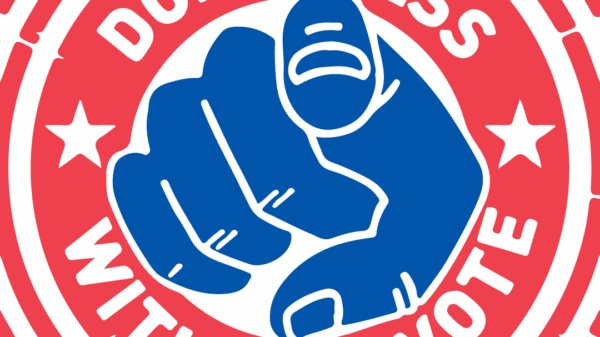Voting is a fundamental right of our democracy. The decisions made in city halls, state legislatures, the United States Congress and every other level of government impact the lives of all North Dakotans.
But the right to vote only matters if you exercise it.
On Nov. 6, North Dakotan voters will cast their ballots for the U.S. Senate and House seats, secretary of state, attorney general and a host of other statewide positions and ballot measures. Because North Dakota doesn’t require voters to register in advance, if you are a resident of North Dakota, you can cast your ballot on Election Day..
Unfortunately, for some, it’s not that easy because of North Dakota’s voter ID law. Here’s what you need to know to vote this year.
- Bring an ID. Only three IDs are accepted at the polls: a North Dakota driver’s license, a North Dakota non-driver ID, or a tribal ID. Tribally issued identification can consist of a tribal ID card issued by the tribe, the Bureau of Indian Affairs, or any other tribal agency or entity, or a document, letter, writing, enrollment card, or other form of tribal identification issued by a tribal authority.
- Your ID MUST have a residential address listed. P.O. boxes will not be accepted. Residents without a street address should contact their county’s 911 coordinator to sign up for a free street address and request a letter confirming that address in order to vote.
- The Native American Rights Fund is working in conjunction with the Spirit Lake Tribe, Standing Rock Sioux Tribe, Turtle Mountain Band of Chippewa Indians, and the Three Affiliated Tribes (“MHA”), as well as community organizations Four Directions and Western Native Voice, to ensure that tribal members living in North Dakota who come to the polls on Election Day will be provided voter identification free of charge.
- If your ID isn’t current, bring supplemental documentation. A utility bill, bank statement, or any document issued by a tribal government, the Bureau of Indian Affairs (BIA), other tribal agencies or authorities, or any other document, letter, writing, enrollment card, or other forms of tribal identification can provide the missing or outdated information (name, current residential street address or mailing address, and date of birth).
- Voter affidavits are OUT. “Set-aside” ballots are IN. If you forget your ID or supplemental documents, you can vote using a “set-aside” ballot. If you vote this way, you have to return to the polling place on the day of the election or go to your County Auditor office before the meeting of the County Canvassing Board six days after the election. This year it will occur on the seventh day because the sixth day is the Veteran’s Day holiday.
The American Civil Liberties Union has a long history of helping voters understand and exercise their rights. We have been at the forefront of the fight against voter suppression as well as the movement to allow new voter access and will continue to do so after the primaries next week and beyond. If you have any issues voting on Election Day, please call the ACLU voter hotline at 701-353-5594.


